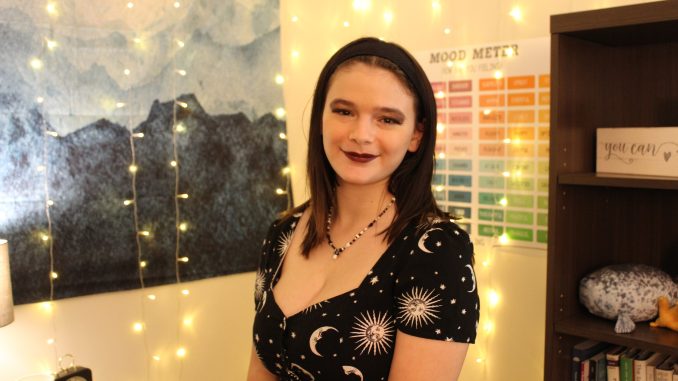
When Kayden Schroyer is at her lowest, she turns to letters and notes she’s received from her friends and her counselor at Ridgeview High School in Paradise.
Schroyer, 17, lost everything when her family’s home was destroyed in the 2018 Camp Fire. Her beloved grandmother, who was like a mother to her, died one year later, and the pandemic began shortly after.
Schroyer experiences depression, and in her sessions with her school counselor, Robert Lester, she’s been able to express and process her feelings. She often does that through writing letters exploring her thoughts about past traumatic experiences or current struggles.
In response, her counselor and friends have replied with letters or messages of support and encouragement, which Schroyer cherishes. They help remind her of her strength, she said.
“I can find answers on how to make myself feel better, because other people will see qualities in me that I cannot see in myself.”
Lester began working as a crisis counselor in 2019, joining a team of six counselors and two program coordinators deployed countywide by the Butte County Office of Education (BCOE) to help children and teens process and recover from the impacts of the Camp Fire.
This program is new. Before the fire, Paradise Unified School District (PUSD) and BCOE schools did not have a system for providing student mental health services beyond those for special education and Medi-Cal eligible students. Though this grant-funded counseling program was initially created as an emergency response, it has become so integral for student wellbeing that administrators with PUSD and BCOE are pursuing additional grant funding to keep those counselors in place.
School officials say the program has knocked down barriers to vital mental health care for youth in a trauma-stricken rural county. It also has helped shift campus culture. Students, like Schroyer, are asking for help when they are struggling.
“If we didn’t have [school] counselors, it’d be a downward spiral, with nobody having anybody to talk to or observe them and help them when they’re breaking down,” Schroyer said. “We need counselors.”
Disaster response
After working nearly 40 years as a school psychologist and student support coordinator, Scott Lindstrom decided to retire. His retirement didn’t last long, however—one year later, he was compelled to help respond to the devastating impacts of the Camp Fire. Since the disaster, he and coworker Matt Reddam, a licensed therapist with decades of experience in trauma intervention and recovery, have been coordinating the placement of counselors at schools across the county, supervising the program and securing grants and training for staff.
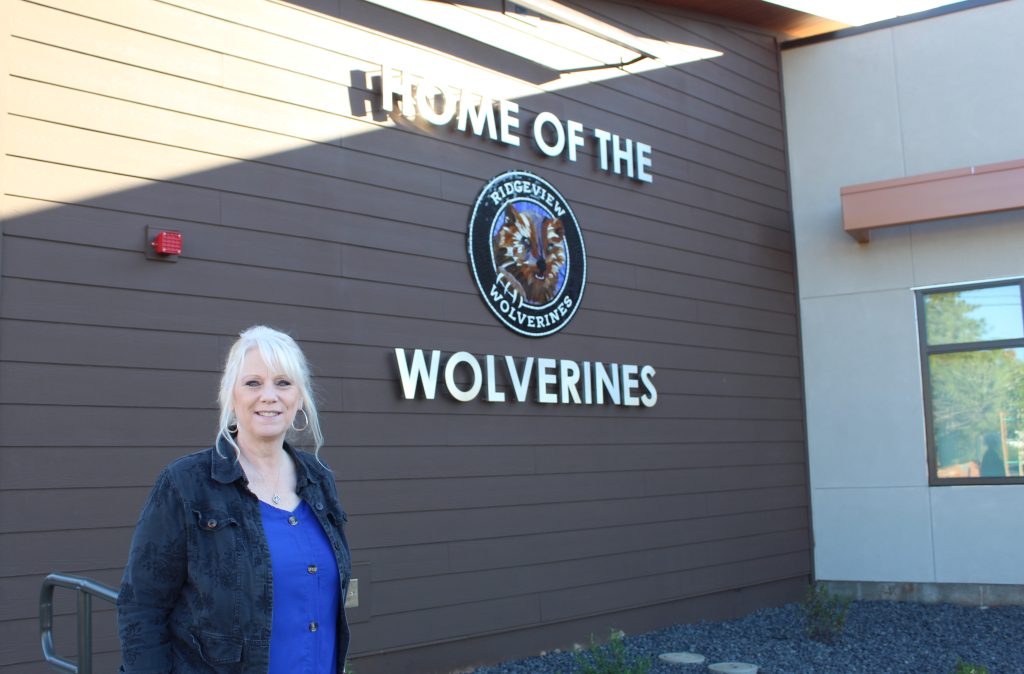
The initial crisis response depended on rallying a lot of volunteers, Lindstrom said, but then they started focusing on finding funding to keep counselors in schools “so we could have people who built relationships with staff and kids stay in place for an extended duration of time.”
These efforts have largely been funded by the North Valley Community Foundation’s Butte Strong Fund, which has granted approximately $2.8 million to BCOE to support counseling/trauma response and recovery in schools since the fire. BCOE has used this funding to hire counselors and deploy them to schools, coordinating with campuses based on their needs. It has been a collaborative partnership between BCOE, school districts, charter schools and Butte County Behavioral Health contractors like Youth for Change, Lindstrom said. Most counselors are working part-time, and some, like Lester, split their time between school sites.
In February, NVCF awarded an additional grant totaling $425,000 to PUSD, which intends to create its own in-school counseling program, bringing in the counselors from BCOE who already have close relationships with their students. The grant will help the district pay for those positions until the 2024-25 school year, by which point PUSD plans to have secured other sources of funding.
BCOE will continue to have counselors serving charters in Paradise and schools in communities like Berry Creek, Concow and Bangor. Lindstrom said they have already secured grant funding for at least the next four years.
“What we want is for this to become a permanent part of the school culture,” he added, “and what we are seeing is more and more people in positions of making policy and budget decisions both locally, at the state level and federal level are seeing this as well, and the funding is starting to come more and more this way.”
Culture shift
Before the Camp Fire, there weren’t school counselors like Lester who could see students on a drop-in basis for free and with no insurance requirements in BCOE or PUSD schools. Campuses did (and continue to) partner with agencies like Youth For Change, which has been a referral- and appointment-based service for students who have Medi-Cal. This meant that oftentimes academic counselors would try their best to help students who were having breakdowns and in need of immediate support, said Carrie Dawes, principal of Ridgeview High School.
In the immediate aftermath of the Camp Fire, Dawes was working in PUSD’s Student Services. She and her colleagues drove where they were needed to help kids, she said, working out of their car trunks and then out of a mall. Given her background as a former English teacher, her role with the district moved in a new direction post-fire as a grant writer and PUSD’s liaison for the counseling program; she has worked closely with Lindstrom and Reddam at BCOE. At the same time, Dawes stepped in to serve as principal of Ridgeview, a continuation high school, which, like many of its students’ families, has moved from place to place post-fire. Construction of Ridgeview’s new campus was finished in Paradise just in time for the 2022-23 school year.
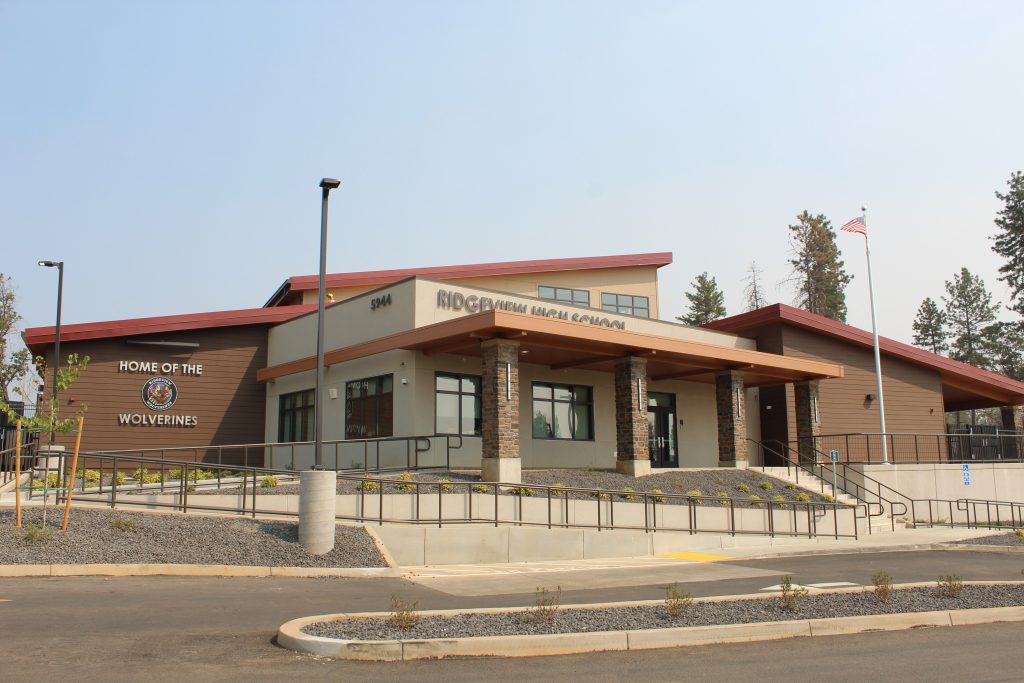
Over the past four years, Dawes has witnessed how the counseling program has changed campus culture and improved mental health care access for students.
Having social-emotional counselors embedded within schools has eliminated the two largest barriers for many students in need of mental health care: transportation and cost, Lester added. This is significant because access on the Ridge is limited. Local families often struggle with transportation, and even if they can get to another town, like Chico, many providers have long wait-lists.
At school, students can receive immediate, drop-in crisis care as well as schedule counseling appointments to work on short-term and intermediate goals.
“Pre-fire, we would never have a student walk in and say, ‘I need a counselor,’” Dawes said. “We’d also never have a parent call and say, ‘Hey, is there a counselor available? My kid needs help.’”
But that’s the norm now, she said. Students ask to see Lester and are coming and going from his office all day. The students know “it’s okay to not be okay,” Dawes said.
This culture shift has been happening at schools countywide, Lindstrom said. More than ever, people are seeing that students need to have resources to address their mental health and wellness, he said, so when they are experiencing grief, loss and trauma, this can be addressed in a supportive place.
“We understand kids need and deserve this support, and the best place to have that is in a school setting,” he continued. “That impacts learning and a child’s ability to sit at a desk and take in what’s in front of them … it impacts kids’ relationships with each other, it impacts the teacher-child relationship. All those aspects we’re trying to address from multiple different angles.”
According to a PUSD District Mental Health Report that utilizes data from the California Healthy Kids Survey, a higher percentage of PUSD seventh graders and students at “non-traditional” schools (i.e., Ridgeview) reported experiencing chronic sadness and considering suicide than the state average in 2021. The largest disparity: 59 percent of PUSD students at Ridgeview reported experiencing chronic sadness compared to the state average of 38 percent. In 2022, over a quarter of PUSD seventh graders, ninth graders and Ridgeview students reported considering suicide. For school officials, this is evidence of the continuing tremendous need for mental health support in local schools, especially after the isolation of the COVID-19 pandemic on top of the trauma from fires. Lindstrom said students have indicated seeing their teachers as a resource, which is a good thing.
“They want adults to be there to talk to. They want adults to talk about [topics like] suicide,” he said. “So let’s be there for them, and let’s make it clear that we are there for them.”
For Dawes, retaining the current counseling staff is an important part of that support.
“These kids have had no continuity since the fire, period,” she said. “We cannot afford to lose these counselors. … Though the community is recovering, there are so many triggers.”
Dawes is driven to continue working to secure funding for social and emotional support “as long as the need is there” for students and staff, she added.
“I don’t think there’s anybody in this district who will say these counselors aren’t worth keeping,” Dawes said. “I have been supported 100 percent by my superintendent, BCOE, my colleagues and the school board, who recognize the need post-fire for ongoing social-emotional supports within PUSD.
“It’s how are we going to pay for it, not if we’re going to pay for it, and that’s thinking positively and using every resource opportunity possible.”
Hope for the future
Four years after the Camp Fire, students and staff are still sensitive and hyper-aware of fire danger. In September, as gusts of wind brought in smoke from nearby fires, Dawes found herself recalling Nov. 8, 2018, when she had to send elementary students on a bus to Forest Ranch to flee for their lives, hoping they’d be able to get out of harm’s way.
Counselors have noticed that, on such smoky days, students are particularly attached to their phones—their lifeline, Lester said.
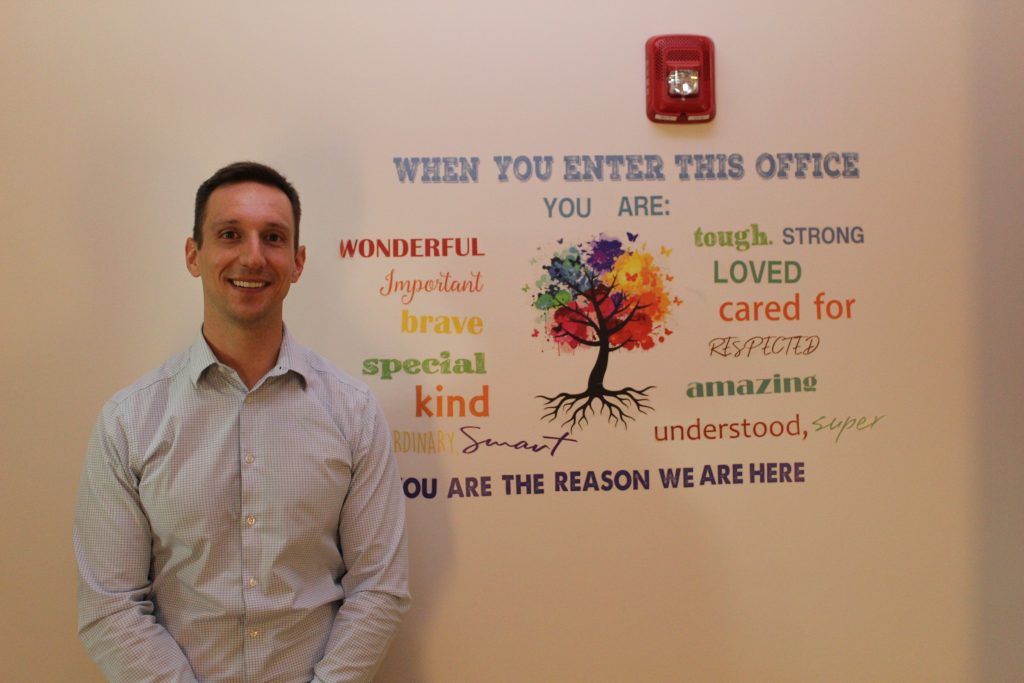
When Lester sees students who are in crisis, he helps them soothe and manage the distressing emotional response they are experiencing through co-regulation: doing seemingly simple things like speaking in a calm manner, pouring them tea and joining them in breathing exercises. This helps ground students and bring them back into the present and out of a crisis state.
When students are not in crisis but need support, Lester works with them on resiliency practices: going through exercises that help them recognize and internalize positive traits about themselves. For example, in one exercise, he’ll ask the student to think of somebody who respects and admires them, then relay what they think that person would say about them.
“For these students in particular, it’s hard for them to see what’s bright about themselves,” Lester explained. These exercises help provide students with the tools to combat negative thoughts and judgment or damaging labels they may have internalized.
In addition to his counseling, every Friday before classes begin, Lester goes into Ridgeview’s central dining area and addresses the campus’ small group of students. As with other ridge schools, attendance numbers dramatically decreased following the disaster. Ridgeview has about 60 students now, down from about 100 before the fire.
Lester’s talks, which began this school year, cover a range of health and wellness topics to educate students and help them learn how to take better care of themselves. (This also helps vary morning announcements for groggy-eyed high schoolers.)
On a recent afternoon in Lester’s office with Schroyer, both recalled a moment during a recent group talk where Schroyer spoke up and shared something hopeful about her life. What she said stuck with Lester.
“You said, ‘I believe in what I’m building,’” he said to Schroyer.
She smiled and added that she’s been forming more friendships lately and focusing on self-care. As for her career goals, she can see herself as a chef, a criminologist, an animator or a motivational speaker.
Regardless of where she ends up after high school, her core desire is to comfort others and change the world for the better, she said.
“I’ve lost a lot of things, but even before the fire I’d lost a lot of things, too,” Schroyer continued. “I’m just trying to find ways to cope, feel better and find hope in myself to keep living. … I’ve accepted [that] a lot of good things go away, but there’s a lot of good [left], too.”

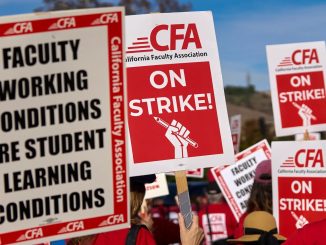


I have to commend people like Kayden S. and Carrie Dawes, those students and faculty who went through the 2018 Camp Fire along with their supporters and family and friends.
My wife and I lost our home and almost all our possessions in that fire, including all our college and grad school records and diplomas, all our elementary and high school records and transcripts, and everything else we’d kept and stored our entire lives (including family photos and so much original art). In a sense we lost part of our identities, including most of the papers and records that gave us those identities.
Fortunately we had good home insurance and all that it entails, and we’ve found a nice home here in Chico, in a good neighborhood, with great neighbors.
But the catch is that we’re both older now and we can’t return to Paradise, or to our lives there, so we have to work with what we have and appreciate it. The advantage that Kayden and her friends (who lost homes in Paradise) have is that they are young and so they have years to build a new life.
Unfortunately we realize that no matter how young you are when this kind of catastrophe occurs, it’s still very difficult to survive these experiences, psychologically intact.
Perhaps Carrie Dawes can provide us with a contact number or address where people can donate financially to her high school and to students like Kayden.